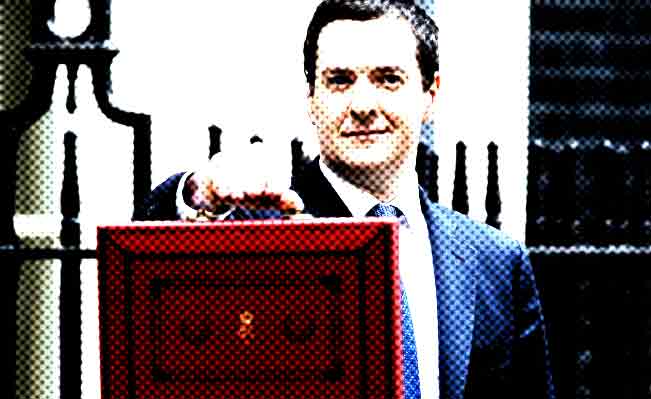
The government is failing to address any of the British economy’s deep-rooted economic issues, instead it’s following the same path that led to the last financial crash writes James Meadway
Chancellor George Osborne delivered his last Budget of the current Parliament on Wednesday, a statement that showed once again how the government is failing to address any of the deep-rooted economic issues we face.
The UK is becoming a more unequal society with higher levels of debt than ever before. Household savings are falling back to levels last seen in 2007, while company investment fell in the last half of last year.
The Budget was an opportunity to address these underlying problems with practical solutions, but instead the chancellor’s measures are full of spin, not substance.
A recovery built on debt
The government’s own forecasters, the Office for Budget Responsibility, predict household debt will rise even higher than before the crash, fuelling an unsustainable, debt-led recovery.
The Chancellor has added more than £517bn to government debt, more borrowing than every Labour government in history added together, and has missed his own target on deficit reduction. This is the direct result of austerity-driven falling earnings bringing down tax receipts.
Worsening inequality
The headline increase in the personal allowance will do nothing for the 5m lowest paid workers who are already below it. Only a quarter of the £2bn cost of the measure will go to the poorest 50% of households. The Treasury’s own analysis shows, once again, the disproportionate impact on low earners, with the poorest 30% worse off due to the combination of tax and benefit changes since 2010.
Whilst the number of jobs in the South of England is up 10% since 2010, the rest of the country has barely returned to the levels of employment seen in 2010. And for all the chancellor’s talk of “Northern Powerhouses”, his colossal cuts to investment, made in early 2010, have left spending on vital infrastructure down £15bn from before he entered office.
Corporate interests over climate
A £1.3bn tax cut for North Sea oil operators, including some of the largest corporations on the planet, further undermines the Prime Minister’s boast of “the greenest government ever”.
The UK has always undertaxed the immense natural resource of the North Sea, effectively squandering billions to boost company profits. If we had applied the same rate of a successful major producer like Norway over the last decade, £118bn would have been raised.
This is money that could have been invested in building a future-proofed low carbon economy. At a time when we should be looking to cut carbon emissions, the Chancellor has given in to oil industry blackmail.
A missed opportunity
Instead of following the same path that led to the last financial crash, the Budget could have been used to seriously address these issues. There are a number of alternative measures we’re suggesting that would see moves towards a fairer and more sustainable economy, including:
- Ending austerity. The reduction in the coalition’s cuts target is welcome, but more could be done. End austerity and use government spending to sustain public services and deliver good quality jobs across the country.
- Higher wages. Raising the national minimum wage to the Living Wage standard would lift 4.6m out of poverty wages and, thanks to the boost to their spending, create 30,000 extra jobs.
- Local banking. Publicly owned banks like RBS should be broken up and turned into responsive, publicly accountable local banks. We estimate this could deliver £30bn extra investment where it is most needed.

